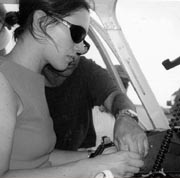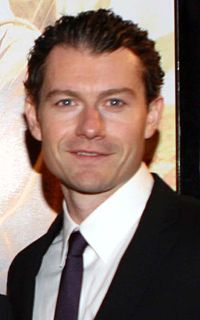A Quote by Judd Nelson
If you read a script enough, especially a good script - I try to read it 40 to 50 times before you begin so you get a sense of the arc: what happens before, what happens after, what happens during.
Related Quotes
When you try to be true to the script, changes occur. A script is there to show us a certain direction. But when you actually have the actors in and you start shooting the movie, you have the actor say a line and it doesn't sound right so you change it and make it different. It's the script that gives birth to these changes and the more you try to stay true to the script, the more that happens.
When you start out as an actor, you read a script thinking of it at its best. But that's not usually the case in general, and usually what you have to do is you have to read a script and think of it at its worst. You read it going, "OK, how bad could this be?" first and foremost. You cannot make a good film out of a bad script. You can make a bad film out of a good script, but you can't make a good film out of a bad script.
With the films, it starts off with certain coordinates in the world and seeing what happens. What happens if you place yourself at an oil refinery in the Middle East? What happens if you place yourself in the White House Cabinet Room? What happens if you place yourself with Brad Pitt on the set of a film? And so on. And no matter what I capture, there is a sense of déjà vu to it, like you might have come across this visual before.
When I'm writing a script, before I can write dialogue or anything, I have two or three hundred pages of notes, which takes me a year. So, it's not like "what happens next." I've got things that I'm thinking about but I don't settle on them. And if I try to write dialogue before then, I can't. It's just garbage.
As we were negotiating, I didn't have a script. Once the deal is closed, they let you read the script. So, I got the script and was reading it like, "Oh, please be good!," because I'd already signed on the dotted line. And I read it and just went, "Okay, I'm going to be okay. Thank god!" It was a really funny, moving story.



































